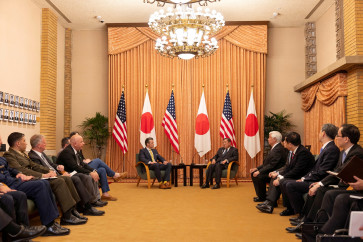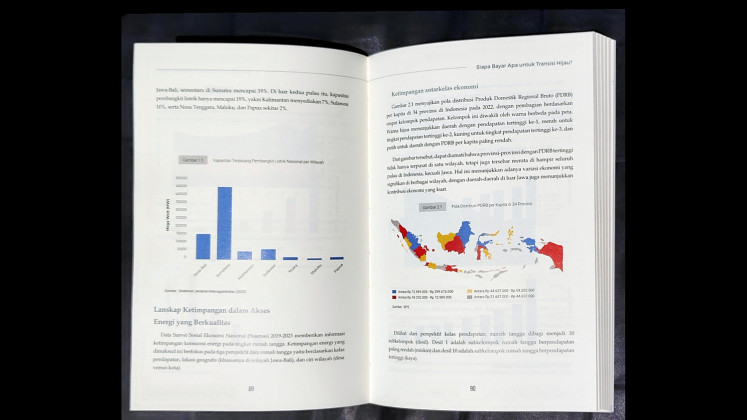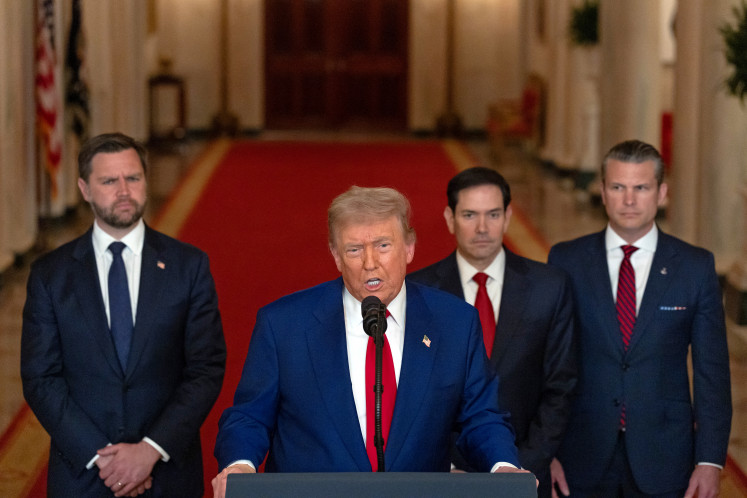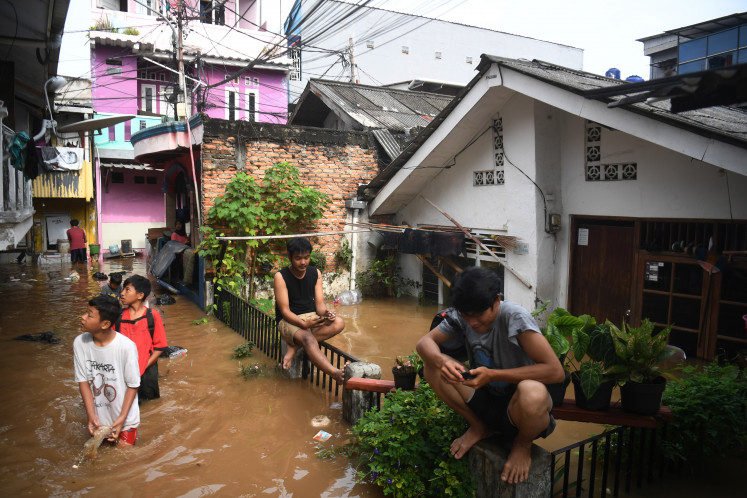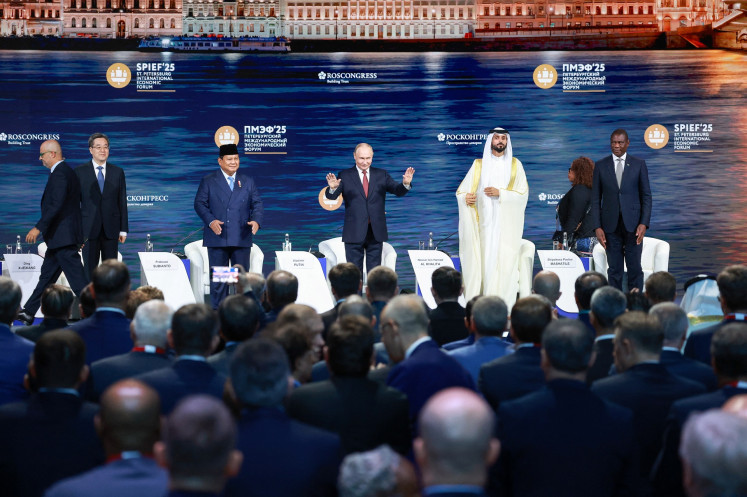Popular Reads
Top Results
Can't find what you're looking for?
View all search resultsPopular Reads
Top Results
Can't find what you're looking for?
View all search resultsCongress seeks to establish national 'cultural strategy'
As many as 296 regencies and 28 provinces have submitted their assessments of cultural development ahead of the Indonesian Cultural Congress (KKI) on Dec. 5-9 in Jakarta, which is set to produce a "cultural strategy" for the nation.
Change text size
Gift Premium Articles
to Anyone
 Balinese women perform a traditional dance during a street parade. The formulation of a cultural strategy, which would be implemented at the national level, would be based on data and recommendations gathered from regional governments. (The Jakarta Post/Agung Parameswara)
Balinese women perform a traditional dance during a street parade. The formulation of a cultural strategy, which would be implemented at the national level, would be based on data and recommendations gathered from regional governments. (The Jakarta Post/Agung Parameswara)
L
ocal administrations across the country have submitted their cultural assessments ahead of the Indonesian Cultural Congress (KKI) that is set to be held by the Education and Culture Ministry on Dec. 5-9 in Jakarta, as the events are expected to produce a culture-related strategy for the nation.
Speaking at a press conference on Monday, the ministry's culture director general, Hilmar Farid, said 296 regencies and 28 provinces had submitted assessments of cultural development, which include, among others things, identifying their cultural strengths, local facilities and infrastructure.
"With well over half of the country's 34 provinces participating, the data is representative of the national condition for policy-making that would affect the entire nation," said Hilmar, who is overseeing the event.
The upcoming congress aims to formulate a policy framework, or dubbed the “cultural strategy”, which focuses on the development of culture, in line with Law No. 5/2017 on cultural advancement.
The ministry notes that the law outlines 10 focus objects of cultural development, namely oral tradition, manuscripts, customs, rites, traditional knowledge, traditional technology, art, language, folk games and traditional sports.
The formulation of the strategy,which would be implemented at the national level, would be based on data and recommendations gathered from regional governments.
"The cultural strategy would be submitted to President Joko Widodo, as the document would then be valid for up to 20 years," Hilmar said.
Further, the congress is also expected to produce a "congress resolution" that would be adopted by congress participants, including representatives from regional governments, as well as relevant stakeholders.
Read also: Government gears up to hold Indonesian Cultural Congress
While different iterations of the congress have been held dating back as far as 1918, this year marks the first time it will be open to the public, inviting the participation of experts, speakers and performers in a series of sideline events throughout the five days, Hilmar said.
"More than 2,300 people have registered so far, bringing together people from various backgrounds and making the event fertile ground to learn and support the development of culture," Hilmar said.
For the venue, artist and designer Novi Kristinawati has created a bamboo-based dome for the main stage of events, which will take place at the ministry's complex on Jl. Sudirman in Central Jakarta.
"The structure is made up of 1,300 pieces of bamboo, measuring 10 meters in height and a diameter of 20 meters," Novi, also speaking at the press conference, said in reference to the stage constructed from material brought from Yogyakarta, where she is based.
Meanwhile, noted poet and writer Afrizal Malna has co-curated a series of cultural objects to be displayed throughout the grounds, ranging from printed, audio and digital mediums that are all set to be at the forefront in illustrating Indonesia's cultural richness.
"We started with taking on two perspectives in the curation process through which we wanted to convey Indonesian culture, one from how others would view Indonesian culture, so those include works by foreign writers and such, while the second, we took from the perspective of how Indonesia would view modernization," Afrizal said. (kes)



